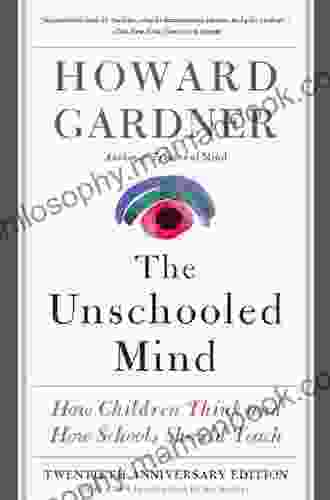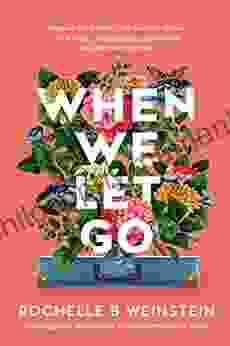How Children Think and How Schools Should Teach: A Comprehensive Guide

Understanding how children think is paramount for educators to effectively impart knowledge and foster cognitive growth. This article delves into the multifaceted world of children's cognitive development, examining key theories and research findings. We explore the implications for teaching practices, advocating for an educational approach that aligns with children's unique cognitive processes.
4.6 out of 5
| Language | : | English |
| File size | : | 1087 KB |
| Text-to-Speech | : | Enabled |
| Screen Reader | : | Supported |
| Enhanced typesetting | : | Enabled |
| Word Wise | : | Enabled |
| Print length | : | 354 pages |
Cognitive Development in Children
Piaget's Theory of Cognitive Development
Jean Piaget, a renowned Swiss psychologist, proposed a groundbreaking theory of cognitive development. He postulated that children progress through four distinct stages as they grow:
- Sensorimotor stage (0-2 years): Infants learn through sensory experiences and motor actions, gradually developing object permanence and understanding cause-and-effect relationships.
- Preoperational stage (2-7 years): Children develop language and symbolic thought but struggle with logical reasoning and conservation (understanding that the quantity of a substance remains the same despite changes in its form).
- Concrete operational stage (7-11 years): Children become more logical and can solve concrete problems based on their experiences. They still struggle with abstract concepts and hypothetical reasoning.
- Formal operational stage (11-15 years): Adolescents develop the ability to think abstractly, reason hypothetically, and engage in scientific reasoning.
Other Cognitive Theories
Besides Piaget's theory, several other frameworks contribute to understanding children's cognitive development:
- Vygotsky's sociocultural theory emphasizes the role of social interaction and language in shaping children's cognitive abilities.
- Information-processing theory views the mind as a system that processes information. It explores how children attend to, encode, store, and retrieve information.
- Constructivism suggests that children actively construct their understanding of the world through their experiences and interactions with their environment.
Implications for Teaching
1. Developmentally Appropriate Practice
Teachers should tailor teaching methods to the cognitive abilities of their students, aligning with the stage of cognitive development they are in. For example, concrete examples and hands-on activities are more effective for young children in the concrete operational stage.
2. Hands-On Learning
Children learn best by actively engaging with their environment. Hands-on activities, experiments, and field trips provide opportunities for children to explore, experiment, and make connections.
3. Cooperative Learning
Social interaction is crucial for cognitive growth. Cooperative learning activities, such as group projects and discussions, allow children to share ideas, learn from each other, and develop social skills.
4. Technology Integration
Technology can enhance learning by providing interactive and engaging experiences. However, it's essential to use technology purposefully and ensure it aligns with cognitive development.
5. Differentiation
Teachers should differentiate instruction to cater to individual students' cognitive strengths and needs. This can involve providing different levels of support, materials, or activities.
Understanding how children think is essential for creating effective learning environments that foster cognitive growth. By embracing developmentally appropriate practices, incorporating hands-on learning, promoting cooperative learning, integrating technology, and differentiating instruction, schools can empower children to learn and thrive at their own pace and in their own way.
Remember, the journey of cognitive development is unique for every child. Teachers and parents should work together to nurture a child's intellectual curiosity, provide ongoing support, and celebrate their progress along the way.
4.6 out of 5
| Language | : | English |
| File size | : | 1087 KB |
| Text-to-Speech | : | Enabled |
| Screen Reader | : | Supported |
| Enhanced typesetting | : | Enabled |
| Word Wise | : | Enabled |
| Print length | : | 354 pages |
Do you want to contribute by writing guest posts on this blog?
Please contact us and send us a resume of previous articles that you have written.
 Top Book
Top Book Novel
Novel Fiction
Fiction Nonfiction
Nonfiction Literature
Literature Paperback
Paperback Hardcover
Hardcover E-book
E-book Audiobook
Audiobook Bestseller
Bestseller Classic
Classic Mystery
Mystery Thriller
Thriller Romance
Romance Fantasy
Fantasy Science Fiction
Science Fiction Biography
Biography Memoir
Memoir Autobiography
Autobiography Poetry
Poetry Drama
Drama Historical Fiction
Historical Fiction Self-help
Self-help Young Adult
Young Adult Childrens Books
Childrens Books Graphic Novel
Graphic Novel Anthology
Anthology Series
Series Encyclopedia
Encyclopedia Reference
Reference Guidebook
Guidebook Textbook
Textbook Workbook
Workbook Journal
Journal Diary
Diary Manuscript
Manuscript Folio
Folio Pulp Fiction
Pulp Fiction Short Stories
Short Stories Fairy Tales
Fairy Tales Fables
Fables Mythology
Mythology Philosophy
Philosophy Religion
Religion Spirituality
Spirituality Essays
Essays Critique
Critique Commentary
Commentary Glossary
Glossary Bibliography
Bibliography Index
Index Table of Contents
Table of Contents Preface
Preface Introduction
Introduction Foreword
Foreword Afterword
Afterword Appendices
Appendices Annotations
Annotations Footnotes
Footnotes Epilogue
Epilogue Prologue
Prologue Alexander Smalls
Alexander Smalls Ric Edelman
Ric Edelman Lenard Adler
Lenard Adler Ernest Renan
Ernest Renan Peter Navarro
Peter Navarro John Perkins
John Perkins Jon Mooallem
Jon Mooallem John Ashbery
John Ashbery Jeffrey D Wilhelm
Jeffrey D Wilhelm Aidan Brophilius
Aidan Brophilius Brendan Galvin
Brendan Galvin Stefania Patinella
Stefania Patinella Edgar Allan Poe
Edgar Allan Poe Christina Sng
Christina Sng Tony Bertaut
Tony Bertaut Robert Arthur
Robert Arthur Nathalie Taghaboni
Nathalie Taghaboni Curtis Faith
Curtis Faith Susan Strange
Susan Strange Oz Montgomery
Oz Montgomery
Light bulbAdvertise smarter! Our strategic ad space ensures maximum exposure. Reserve your spot today!
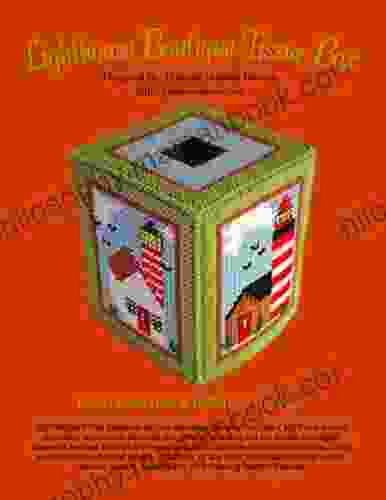
 Brayden ReedLighthouse Boutique Tissue Box Plastic Canvas Pattern: A Beginner's Guide to...
Brayden ReedLighthouse Boutique Tissue Box Plastic Canvas Pattern: A Beginner's Guide to... Hugo CoxFollow ·7.5k
Hugo CoxFollow ·7.5k Alan TurnerFollow ·4.6k
Alan TurnerFollow ·4.6k Brennan BlairFollow ·12k
Brennan BlairFollow ·12k Dan BellFollow ·14.4k
Dan BellFollow ·14.4k Denzel HayesFollow ·17.7k
Denzel HayesFollow ·17.7k Chase SimmonsFollow ·17.3k
Chase SimmonsFollow ·17.3k Diego BlairFollow ·13k
Diego BlairFollow ·13k Jackson BlairFollow ·19.9k
Jackson BlairFollow ·19.9k
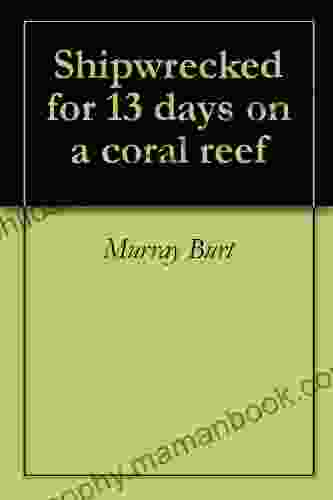
 Ignacio Hayes
Ignacio HayesShipwrecked For 13 Days On Coral Reef: A Tale of Survival...
In the vast expanse of the...
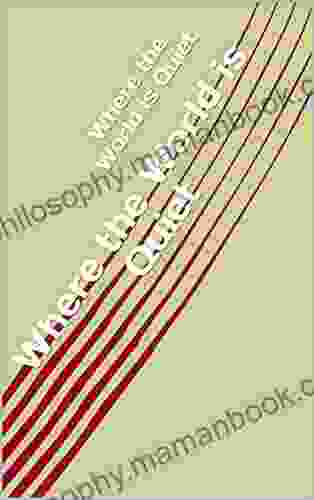
 Gerald Parker
Gerald ParkerWhere the World Is Quiet: Delving into a Realm of Serene...
A Tapestry of Serenity In the tapestry...

 Charles Bukowski
Charles BukowskiPloughshares Winter 2009: Guest Edited by Tony Hoagland
Ploughshares...

 Rubén Darío
Rubén DaríoAnthology of Massachusetts Poets: William Stanley...
William Stanley...
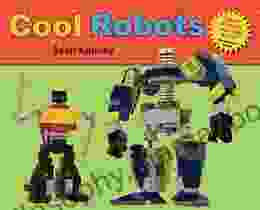
 Jason Hayes
Jason HayesSean Kenney's Mesmerizing Robot Masterpieces: A Journey...
In a realm where imagination meets...
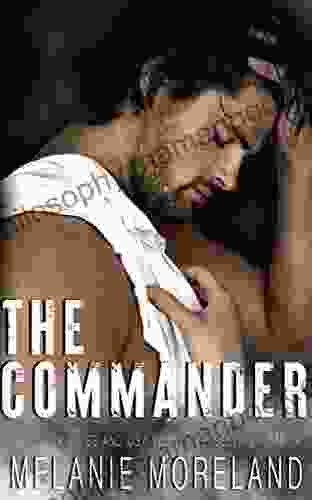
 Terence Nelson
Terence NelsonUnveiling the Elite Force: The Commander Men of Hidden...
In the shadows of society, where justice...
4.6 out of 5
| Language | : | English |
| File size | : | 1087 KB |
| Text-to-Speech | : | Enabled |
| Screen Reader | : | Supported |
| Enhanced typesetting | : | Enabled |
| Word Wise | : | Enabled |
| Print length | : | 354 pages |


